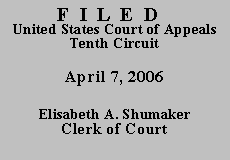

| UNITED STATES OF AMERICA, |
|
The parties are familiar with the facts leading up to Mr. Salome-Gonzales's guilty plea and we need not repeat them here. Mr. Salome-Gonzales pled guilty to possession of methamphetamine with intent to distribute, in violation of 21 U.S.C. § 841(a)(1). The probation office prepared a pre-sentence report ("PSR"). Initially, the PSR calculated a guidelines range of 135-168 months imprisonment. Mr. Salome-Gonzales objected to the PSR and argued several grounds for a lower sentence, including his limited role as a courier, his lack of criminal history, his personal and family characteristics including four young children and a supportive family, his stable employment history, and that a lower sentence would fulfill societal and governmental interests. I R. Doc. 24 at 4-6. He also argued for a downward adjustment based upon his limited role in the offense, U.S.S.G. § 3B1.2(a)-(b), and for a safety valve reduction, U.S.S.G. § 5C1.2. In response to these objections, the probation office amended the PSR, concluding that Mr. Salome-Gonzales was a minor participant in the offense and that he qualified for the safety valve reduction. Based on this amended PSR, Mr. Salome-Gonzales's guidelines range was 70-87 months imprisonment.
The district court conducted a sentencing hearing. At that hearing, Mr. Salome-Gonzales indicated he had no objection to the amended PSR. II R. at 4. The district court informed the parties that it would follow the approach discussed above. Mr. Salome-Gonzales's counsel argued that even under the court's approach, this was an unusual case and that the elements in 18 U.S.C. § 3553(a) would justify a lower sentence. The district court announced that it would not vary from the guidelines and sentenced Mr. Salome-Gonzales, at the lower end of the guidelines range, to 70 months imprisonment.
Subsequent to sentencing, we decided United States v. Kristl, 437 F.3d 1050, 1054 (10th Cir. 2006), holding that a sentence properly calculated under the sentencing guidelines is entitled to a rebuttable presumption of reasonableness "that either the defendant or the government may rebut by demonstrating that the sentence is unreasonable when viewed against the other factors delineated in § 3553(a)." This is not a conclusive presumption; were it so the advisory guidelines would become mandatory contrary to Booker. Kristl, 437 F.3d at 1054. Though concerned with our appellate standard of review, we think that such an approach informs what role the guidelines have in a district court's sentencing procedure. Rather than comment on the frequency with which properly-calculated guideline sentences will be appropriate, the paramount inquiry is whether the sentence imposed is reasonable or unreasonable when considered against the record developed in relation to the factors contained in § 3553(a). Plainly, the district court must consider the guidelines sentence, but it also must consider the parties' presentations on the appropriate sentence under 18 U.S.C. § 3553(a).
The district court recognized that the guidelines are advisory, and stated that "the defendant has already gotten considerable benefit from the way things have played out in this case, and in light of that I think that a 70-month sentence is appropriate, having considered all the arguments." II R. at 8. We do not require a recitation by a district judge on each of the § 3553(a) factors, and though the district court perhaps could have justified a lower sentence based upon the nature and circumstances Mr. Salome-Gonzales's personal history and characteristics, it was not required to do so. See United States v. Mares, -- F.3d --, 2006 WL 752017, at *8 (10th Cir. Mar. 24, 2006). Having reached this conclusion in light of our now more developed precedent, we need not address the district court's comprehensive views on the Sentencing Guidelines contained in its published opinions. Sentencing must be an individual endeavor. Regardless of the district court's enthusiasm for the Sentencing Guidelines, sound reasons were apparent for the sentence imposed, including the need to avoid sentencing disparities and the seriousness of the crime as reflected in the quantity. 18 U.S.C. § 3553(a)(2), (6); United States v. Galarza-Payan,-- F.3d --, 2006 WL 689447 (10th Cir. Mar. 20, 2006). Accordingly, we find that any error in the process was harmless because it did not affect the selection of the sentence imposed. See Williams v. United States, 503 U.S. 193, 203 (1992) (remand appropriate only when error was not harmless).
AFFIRMED.
Entered for the Court
Paul J. Kelly, Jr.
Circuit Judge
*. This order and judgment is not binding precedent, except under the doctrines of law of the case, res judicata, and collateral estoppel. This court generally disfavors the citation of orders and judgments; nevertheless, an order and judgment may be cited under the terms and conditions of 10th Cir. R. 36.3.
2. After examining the briefs and the appellate record, this three-judge panel has determined unanimously that oral argument would not be of material assistance in the determination of this appeal. See Fed. R. App. P. 34(a); 10th Cir. R. 34.1(G). The cause is therefore ordered submitted without oral argument.